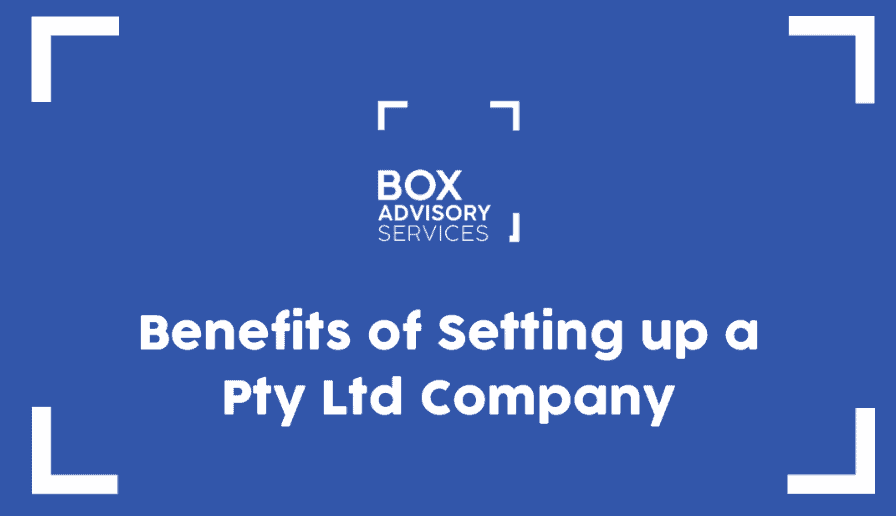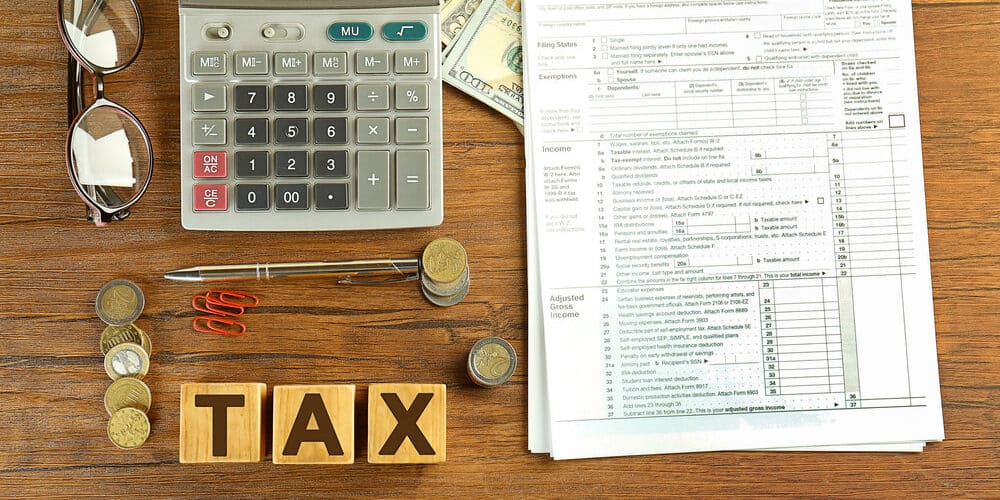
BY
|
How to Choose the Best Accounting Service Sydney: Costs, Questions, and Local Checklists
This guide helps small business owners, sole traders, and startups find the best accounting Sydney has on offer.
TL;DR: Quick Guide for Sydney Small Business Owners –Top 5 Takeaways:
- Expect to pay $300–$800 monthly for bookkeeping, BAS, and payroll services in Sydney.
- Choose accountants with ATO registration and BAS agent credentials.
- Cloud accounting platforms (Xero, MYOB, QuickBooks) are now standard.
- Ask for clear pricing before you sign anything.
What “Best” Means for Accounting Firms in Sydney
The right accounting partner combines technical skills with strategic advice and modern technology. They should also have extensive experience and qualifications that cover the following areas.
Essential Compliance Coverage
Your accountant should be able to handle Business Activity Statements (BAS) easily. Most businesses lodge quarterly. They must understand Single Touch Payroll (STP) reporting and be familiar with any changes related to it. This sends payroll information to the ATO with each pay run and is an integral part of your financials.
Your accountant should track superannuation deadlines. For example, the super guarantee must be paid quarterly. They should also handle GST calculations, PAYG withholding, and fringe benefits tax.
Strategic Advisory Beyond Compliance
The best accountants do more than lodge tax returns. They provide cash flow advice and help you spot problems before they happen.
Additionally, they should be able to offer you accurate financial forecasting to assist you in planning = for growth and making smart hiring decisions.
Remember, industry-specific expertise matters. A hospitality accountant knows venue GST rules, while a construction expert understands progress payments. Look for professionals who explain financial data in plain language.
At Box Advisory Services, we sit with you to understand your niche, your business’s goals and how you’d like to integrate better financial systems into your operations.
Pricing and ROI: Sydney Accounting Services Costs in 2026
Sydney accounting fees vary based on your business structure and complexity, and the level of experience your chosen expert has in the field.
Below are some example average costs that you may come across in the field. Please note that these are subject to change and depend on the individual accountant you approach. Every firm is different.
These prices do not indicate the pricing associated with Box Advisory Services, but are the average in the industry for Australia:
Comprehensive Pricing Breakdown
| Service | Cost Range | Includes |
| Sole Trader Tax Return | $500–$1,000 | Income reconciliation, deductions, ATO lodgement |
| Company Tax Return | $600–$1,500 | Financial statements, director declarations |
| Monthly Bookkeeping | $300–$600 | Bank reconciliation, accounts payable/receivable |
| BAS Preparation | $150–$300 per quarter | GST calculation, ATO submission |
| Payroll Processing | $25–$50 per employee/month | Pay slips, STP reporting, super tracking |
| Annual Financial Statements | $800–$2,500 | Compilation or review |
| Business Advisory | $150–$300 per hour | Strategic planning, cash flow analysis |
| SMSF Setup & Compliance | $1,800–$3,500 annually | Trust deed, annual returns |
Pricing Models Explained
- Fixed Monthly Packages: Many firms offer bundled services for a predictable monthly fee. This works well for consistent transaction volumes.
- Hourly Billing: Traditional time-based billing suits occasional advisory work. Rates range from $150 to $350 per hour.
- Value-Based Pricing: Some firms charge based on outcomes rather than time. This aligns incentives but requires a clear scope definition.
Calculating Your ROI When Hiring an Accountant
The right accountant saves you money through penalty avoidance, like dodging the late BAS penalty, which starts at $313. They also optimise your tax deductions and allow you to properly structure your business to save thousands of dollars every year.
Finally, they save you time, helping you reclaim more than 10 hours a month on financials.
Framework for Choosing the Best Accountant Service in Sydney
Use this framework to objectively evaluate potential accounting partners.
| Evaluation Criteria | Suggested Weight | Scoring Guidance | Your Score |
|---|---|---|---|
| Local Sydney Expertise | 25% | Experience with NSW regulations and Sydney businesses | ___/10 |
| Technology Stack | 20% | Cloud platform certifications and integrations | ___/10 |
| Compliance Track Record | 20% | ATO registration and BAS agent credentials | ___/10 |
| Communication Quality | 15% | Response times and clarity | ___/10 |
| Pricing Transparency | 10% | Clear fee structures in writing | ___/10 |
| Client References | 10% | Testimonials from similar businesses | ___/10 |
Calculation: Multiply each score by its weight. Then add them up for a total of 100. Candidates scoring above 75 are strong choices. Those below 60 likely have weaknesses.
Adjust weights based on your needs. For instance, tech startups should increase the Technology Stack to 30%, while professional services might raise Communication Quality to 20%. Retail businesses should prioritise systems integration.
Interview Questions to Ask Your Accountant
Use the following questions to help uncover competency and compatibility when hunting around for the best accounting service in Sydney.
Compliance & Technical Expertise
Question 1: “Walk me through your BAS preparation process for a Sydney small business in [your industry].”
Strong Answer: They explain specific steps. They mention timing, GST reconciliation, and industry deductions. They reference their BAS agent registration number.
Weak Answer: Vague statements without process details.
Question 2: “How do you ensure Single Touch Payroll compliance?”
Strong Answer: They explain STP-enabled software. They mention reporting frequency and finalisation deadlines. They describe the difference between employees and contractors.
Weak Answer: “We’ll take care of that” without details.
Question 3: “What’s your approach to superannuation compliance?”
Strong Answer: They reference the current super guarantee rate. They mention quarterly deadlines (28th of October, January, April, July). They explain penalty avoidance.
Weak Answer: No specific deadlines or penalty details.
Technology & Integration
Question 4: “Which cloud accounting platforms are you certified in, and which suit my business?”
Strong Answer: They compare platforms fairly. Xero excels in integrations. MYOB suits local support needs, while QuickBooks offers affordable reporting. They explain certification status.
Weak Answer: Pushing one platform without assessing your needs.
Question 5: “How would you integrate our current systems with our accounting platform?”
Strong Answer: They discuss API connections, bank feeds, and data mapping. They explain reconciliation workflows.
Weak Answer: Suggesting manual data entry.
Question 6: “What mobile capabilities will I have?”
Strong Answer: They discuss cloud platform mobile apps. They explain real-time dashboard access and smartphone receipt capture.
Weak Answer: Desktop-only approach.
Advisory & Strategic Support
Question 7: “Can you provide examples of how you’ve helped businesses like mine?”
Strong Answer: They offer specific scenarios with measurable results. Example: “We helped a retail client reduce debtor days from 45 to 30, improving cash position by $40K”.
Weak Answer: Generic statements without concrete examples.
Question 8: “How often will you provide financial reports?”
Strong Answer: They specify monthly reports. These include the profit and loss statement, balance sheet, cash flow statement, and KPIs. They mention quarterly strategic reviews.
Weak Answer: Annual reporting only.
Question 9: “What’s your year-end tax planning process?”
Strong Answer: They describe proactive meetings in April-May. They discuss scenario modelling, instant asset write-offs, and income deferral strategies.
Weak Answer: Reactive compliance focus only.
Communication & Relationship
Question 10: “What’s your typical response time for urgent questions?”
Strong Answer: They commit to specific timeframes. Example: same-day for urgent matters, 24-48 hours for routine questions.
Weak Answer: No commitments.
Question 11: “Who will be my primary contact?”
Strong Answer: They introduce team members by name and role. They explain oversight and backup procedures.
Weak Answer: Unclear team structure.
Question 12: “How do you stay current with tax law changes?”
Strong Answer: They reference professional development. They mention memberships (CPA, CA) and client newsletters.
Weak Answer: No systematic approach.
Pricing & Terms
Question 13: “Can you provide a detailed written fee proposal?”
Strong Answer: They offer a comprehensive engagement letter. It shows scope, pricing, billing frequency, and termination conditions.
Weak Answer: Verbal estimates only.
Question 14: “What happens if we exceed the assumed transaction volume?”
Strong Answer: They explain review triggers. They mention the adjustment process and advance notice provisions.
Weak Answer: Vague upcharge threats.
Question 15: “Can you provide three client references?”
Strong Answer: They willingly provide contacts from your industry and a similar business size.
Weak Answer: Confidentiality excuses or no references.
Comparison Table: Service Delivery Models
In the accounting field in Austraila, there are several models you can choose from, depending on the kind of service you need, and where your business is in terms of growth.
| Model | Monthly Cost | Advantages | DisadvantagesBest Fit | |
| In-House | $4,000–$8,000 | Direct control, immediate access, deep knowledge | High cost, limited expertise, leave coverage | 20+ employees, complex transactions |
| Outsourced | $300–$800 | Broad expertise, scalable, compliance assured | Less immediate access, communication lag | Most SMBs |
| Hybrid | $1,500–$3,000 | Daily control with expert oversight | Coordination overhead | Growing businesses (10-50 employees) |
| Offshore + Local | $200–$500 | Cost reduction, 24-hour coverage | Communication challenges, compliance gaps | High-volume transactions |
| DIY + Review | $100–$300 | Maximum cost control | Time intensive, error risk | Sole traders, simple models |
- Choose in-house when you need minute-by-minute financial access.
- Select outsourced when you want professional service without employment overhead.
- Consider hybrid during transition phases.
- Avoid offshore-only without local oversight. Australian tax is complex.
- The DIY model works only for exceptionally simple businesses.
Red Flags and Risk Mitigation
Watch for these warning signs when you’re assessing who offers the best accounting service in Sydney.
Critical Warning Signs
- Credential Gaps: Any accountant providing BAS services must hold BAS agent registration. Verify their number on the TPB website.
- Pricing Red Flags: Unusually low quotes indicate inexperience. Excessive pricing suggests poor positioning. Refusal to provide written estimates signals unprofessionalism.
- Communication Concerns: Slow responses during courtship worsen after engagement. Technical jargon without explanation shows poor communication skills.
- Technology Limitations: Desktop software indicates outdated practices. Cloud accounting is now standard.
- Reference Reluctance: Professional accountants are reluctant to provide references. Refusal suggests quality problems.
Risk Mitigation Strategies
- Verify Credentials: Check TPB registration at tpb.gov.au. Confirm professional memberships. Review disciplinary history.
- Start with a Trial: Negotiate a three-month initial engagement. Either party can terminate with 30 days notice.
- Document Everything: Insist on written engagement letters. These specify scope, pricing, deliverables, and timelines.
- Maintain Oversight: Review reports monthly. Understand your obligations. Keep direct access to your accounting system.
Tooling and Integrations: Technology Stack Expectations
Modern accounting requires cloud-based systems, so assess whether your chosen service carries these features and integrations.
Core Accounting Platforms
Xero: Dominates the Australian SMB market. It offers over 800 integrations. Strengths include intuitive design, unlimited users, and excellent mobile apps. Best for service businesses and retailers.
MYOB: Offers strong Australian tax compliance. It includes excellent BAS and payroll functionality. It works online and offline. Best for hospitality, construction, and payroll complexity.
QuickBooks: Delivers powerful reporting and forecasting. It excels at expense categorisation and job costing. Best for professional services and contractors.
You can view our comparison of these platforms here.
Essential Integrations
Payment Processing: Direct bank feeds with major banks automatically import transactions. Payment gateways (Stripe, Square, PayPal) match online revenue.
Receipt Capture: Tools like Dext allow employees to photograph receipts. The system automatically extracts vendor, date, amount, and GST.
Inventory Management: Platforms like Cin7 or Unleashed sync product data between the point of sale and accounting systems. This maintains the accurate cost of goods sold. Platforms like Xero can also streamline this process.
CRM and Invoicing: Integrations ensure quotes convert to invoices seamlessly. They track payment follow-up.
Technology Selection Criteria
- Choose Xero for breadth of integration, MYOB for confidence in compliance, and QuickBooks for depth of reporting. Ensure your accountant holds certification in your chosen platform.
- Cloud security is non-negotiable. Verify two-factor authentication and role-based access. Ask about cybersecurity protocols.
Validating Credentials and Expertise
Always make sure your chosen expert is ready for the task at hand. Verify their qualifications across multiple channels and use the questions above to determine whether they’re a good fit for the job.
Credential Verification
- Tax Practitioners Board Registration: Every BAS service provider must be registered with the TPB. Visit tpb.gov.au and search the public register. Check registration status and disciplinary history.
- Professional Body Membership: Membership in CPA Australia, Chartered Accountants ANZ, or the Institute of Public Accountants indicates ongoing professional development.
- Qualifications: Most qualified accountants hold at least a Bachelor of Commerce. BAS agents need minimum Certificate IV plus 1,000-1,400 hours supervised experience.
Trust Indicators
- Transparency: Professional accountants discuss their services appropriately. They acknowledge when questions fall outside their expertise.
- Professional Indemnity Insurance: All registered agents must maintain Professional Indemnity Insurance. This protects you if errors lead to losses.
- Clear Engagement Terms: Written letters specify scope, responsibilities, pricing, and termination conditions.
Frequently Asked Questions
What should a Sydney small business expect to pay monthly?
Comprehensive monthly packages typically cost $300–$800. Sole traders pay $300–$500. Companies with payroll pay $500–$800. Always request itemised pricing.
How do I switch accountants mid-year?
Review your current engagement letter for notice requirements (typically 30 days). Request a handover meeting with both accountants. Export all data. Schedule the switch after BAS lodgement when possible.
What’s the difference between a BAS agent and tax agent?
BAS agents can prepare Business Activity Statements. Tax agents provide comprehensive tax advice. Registered accountants typically hold tax agent registration plus professional qualifications. Look for tax agent registration at minimum.
Should my accountant have access to my direct bank account?
No. Your accountant should never need direct login access. Modern accounting uses read-only bank feeds. You maintain complete banking control. Direct access requests are a red flag.
How often should I receive financial reports?
Expect monthly profit-and-loss statements and balance sheets. Schedule quarterly BAS meetings. Growing businesses need monthly management packages. Meet quarterly for strategic reviews at minimum.
Can my accountant help with business planning?
Quality accountants provide strategic advisory beyond compliance. They model growth scenarios, forecast cash flow, and interpret financial metrics. Deep strategic work often requires additional fees beyond base packages.
What happens if my accountant makes an error?
Registered agents carry professional indemnity insurance. If mistakes cause penalties or losses, you may have a claim. Document errors thoroughly. Notify your accountant in writing immediately. You can lodge complaints with the Tax Practitioners Board.
What should I do if my accountant is unresponsive or I suspect errors in my accounts?
If your accountant is unresponsive or you suspect errors, document all communication, try multiple contact methods, set clear deadlines, review your engagement letter, and escalate to senior staff if necessary.
Is it better to hire a large firm or small boutique?
Both offer advantages. Large firms provide deep specialist resources and capacity. Small practices deliver personalised service and direct partner access. Assess based on your specific needs, not firm size.
Looking for the Best Accountant in Sydney? You Find Us
Ready to find your ideal accounting partner? Use the scoring framework and interview questions above to evaluate potential accountants systematically. The right accounting relationship delivers strategic insights, proactive advice, and peace of mind for sustainable growth.
Or skip the hard work and speak to our team now to see why we’re the best small business accountants in the Sydney region (and even beyond).



